US, France, UK, Germany Discuss Iran’s Nuclear Deal, Destabilizing Acts
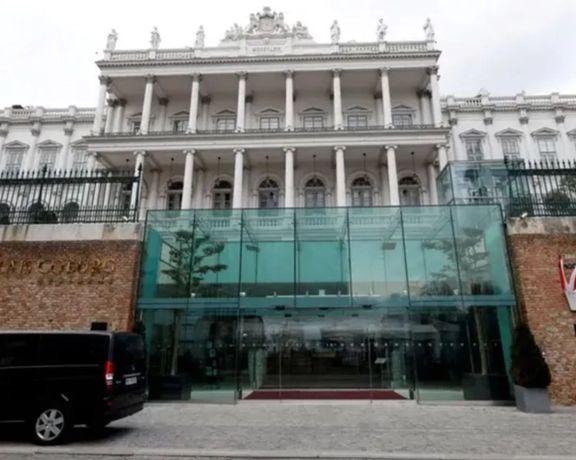
The leaders of Western powers engaged in Iran's nuclear talks discussed efforts to revive the 2015 JCPOA accord, the White House said on Sunday in a statement.

The leaders of Western powers engaged in Iran's nuclear talks discussed efforts to revive the 2015 JCPOA accord, the White House said on Sunday in a statement.
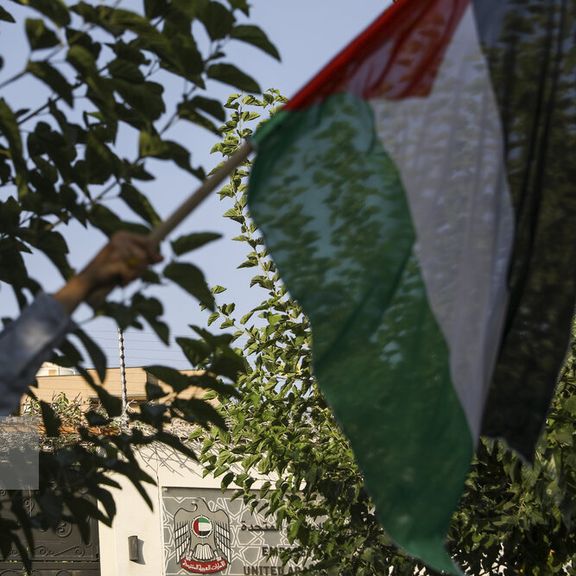
The United Arab Emirates says its ambassador to Iran, Saif Mohammed Al Zaabi, will resume his duties at the embassy in Tehran in the coming days.
The UAE's foreign ministry said in a statement on Sunday that the decision was made "in line with UAE efforts to strengthen relations with Iran and as part of a previous decision to increase diplomatic representation to the rank of ambassador.”
Noting that the decision followed a recent phone call between the two countries’ foreign ministers Sheikh Abdullah bin Zayed Al Nahyan and Hossein Amir-Abdollahian held on July 26, 2022, the ministry said the move contributes to “further advancing bilateral relations in cooperation with officials in Iran to achieve the common interests of the two countries and the wider region.”
The UAE had recalled its ambassador from Tehran in 2012 after the then-President Mahmoud Ahmadinejad visited Abu Musa island as part of a tour of Iran’s Persian Gulf coast. Located 60 kilometers off the UAE, the Persian Gulf country claims it as sovereign territory along with the Lesser and Greater Tunb Islands near the Strait of Hormuz. Iran, which claimed control of the islands in 1971, at various points provided documents that indicate the islands were rented out to Arabs during the British colonial period.
Earlier in the month, Kuwait also appointed an ambassador to Iran, more than six years after recalling its top envoy to Tehran in solidarity with Saudi Arabia after it severed ties with the Islamic Republic in 2016. Ambassador Bader Abdullah Al-Munaikh handed his credentials to Amir-Abdollahian on August 13, as Riyadh works to improve ties with the Islamic Republic.
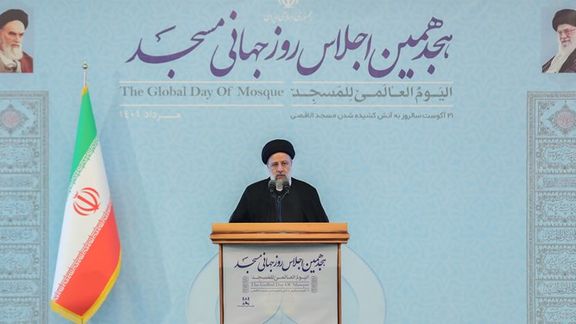
Iran’s president says his administration will not give up on the nation’s rights in any negotiations as agreement to revive the 2015 nuclear deal seems imminent.
During his address at a conference attended by a selection of clergymen on Sunday, Ebrahim Raisi said, “We will not back down on the nation’s rights at any meeting or negotiation” alluding to the ongoing talks on restoring the nuclear accord, known as the Joint Comprehensive Plan of Action (JCPOA).
Claiming that his administration has achieved many of its goals, he said his government “will not tie people’s livelihood to any external factor and will persevere in its effort to solve the problems facing the country and people.”
Raisi made the remarks amid speculations about the fate of the JCPOA after Iran conveyed its response to an EU-proposed draft to conclude the Vienna talks.
However, Nour News, a website affiliated with the secretary of Iran's Supreme National Security Council (SNSC), Ali Shamkhani, said on Sunday that although in recent days many speculations and statements were made about the nature of Iran's response and US views, until parties present in Vienna Talks speak officially, none of this can reflect current realities.
Mohammad Marandi, who acts as de facto spokesman for Iran's nuclear negotiating team, also said on Sunday that final steps remain to be taken to achieve an agreement, but "evidence shows that the US reaction is clear, and they know they should cooperate with Iran and our negotiating team in these final steps."

A top Iranian spokesman, Mohammad Marandi, re-affirmed on Sunday that Tehran has received considerable concessions from Washington in the Vnuclear talks.
In an interview with Jameh Jam newspaper published by Iran’s state broadcaster, IRIB, Marandi said that “The achievements of the Islamic Republic in the nuclear talks in the past one month were exceptional.”
A leaked report from Tehran on Friday, August 19, said that Iran’s chief nuclear negotiator Ali Bagheri-Kani had given local reporters in a closed-door briefing a list of “concessions” obtained from the United States.
These included exempting a range of Iranian government-linked entities from sanctions imposed for their role in Iran’s terror-related activities, and a pledge not to sanction any entity for links with the Revolutionary Guard.
Marandi seemed to confirm Bagheri-Kani’s reported remarks in general terms. “We were able to achieve huge progress in all areas, including guarantees, verification and sanctions issues, as well as issues related to the IAEA.”
The US-born Iranian official mentioned two reasons for this success. First he claimed that Iran resisted US sanctions by relying on its own means, and second, the negotiating team was “patient” and did not rush into a deal, until the other side relented.
”These achievements, of course, were the result of the new negotiating team paying attention to the point that if we had concluded an agreement in haste, we had to pay the price for it later,” Marandi claimed.
In a sense, his point seems to be supported by the fact that Tehran has dragged out the Vienna negotiations from June 2021 to the present. Critics of the Biden Administration’s negotiating tactics repeatedly pointed out that Iran is buying time and wearing down the US side, and a definite deadline should be set, but the West failed to enforce its own warnings to Tehran on 11 separate occasions.
Another possible negotiating failure was what Marandi called resistance against sanctions. Iran’s economy, which was already in crisis last year, experienced more shocks and a dismal performance in 2022, but it was able to bear the burden because of higher oil exports since the President Joe Biden took office.
The President’s early signal that he was ready to return to the 2015 nuclear deal, the JCPOA, emboldened China to buy more oil from Iran. Exports jumped from around 250,000 barrels per day in 2019 to close to one million bpd in January 2022.
“This increased our capacity in the nuclear talks and gradually changed the mind of the other side, about the impact of economic pressures and sanctions on the atmosphere of the negotiations,” Marandi insisted.
Another factor reassuring Iran’s rulers that they could withstand economic pressure was their willingness to use military force against unrest by an impoverished population. This scenario, which has played out repeatedly since 2017 in Iran, was once again demonstrated during protests in May.
Marandi acknowledged that a nuclear deal is not yet final but expressed confidence that the United States will play by Iran’s tune.
”Of course, final steps remain, and results should be obtained, but evidence shows America’s response is clear and they know that during these final steps they should cooperate with the Islamic Republic and our negotiating team.”
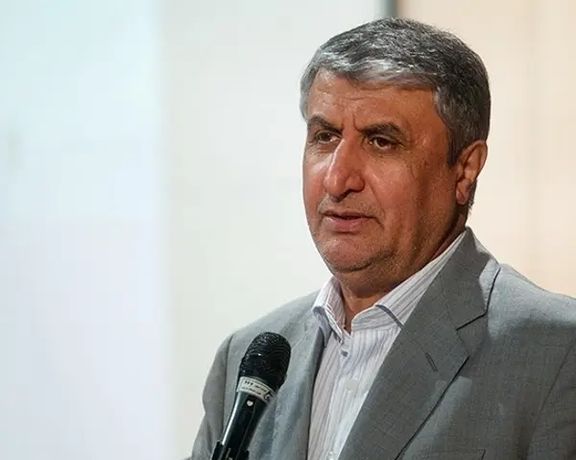
The head of the Atomic Energy Organization of Iran (AEOI) says "at least 30,000 specialized personnel" should be trained only in the nuclear power plant sector in the next 20 years.
During his address to the Iranian education sector's directors in Tehran on Sunday, Mohammad Eslami said that in accordance with the country’s roadmap for the expansion of its nuclear industry, the AEOI has decided to establish schools in the cities with nuclear facilities, from the elementary school level, to start training nuclear scientists for the next generation of the country’s nuclear program.
Eslami also claimed, “Everyone should know that the nuclear fuel cycle is a power-generating one, and has nothing to do with building a bomb,” adding that the West levels “spurious allegations against Iran and wrongfully accuses us of attempts to produce a nuclear bomb only because they do not want us to acquire nuclear technology.”
“Despite fierce opposition expressed in recent years to Iran’s heavy water production, we have managed to build on our relevant expertise both in the atomic industry and molecular sector,” he added.
Late in July, Eslami said members of parliament are seeking to legislate a 50-year nuclear roadmap so change of administrations cannot influence the program.
Around the same time, two Telegram channels with links to Iran’s Revolutionary Guard suggested that “Iran may build nuclear warheads “in the shortest possible time” if attacked by the US or Israel.
Iran has now enriched enough uranium to 60 percent that if further enriched to 90 percent, the fissile material will be sufficient for a nuclear bomb within a few weeks.
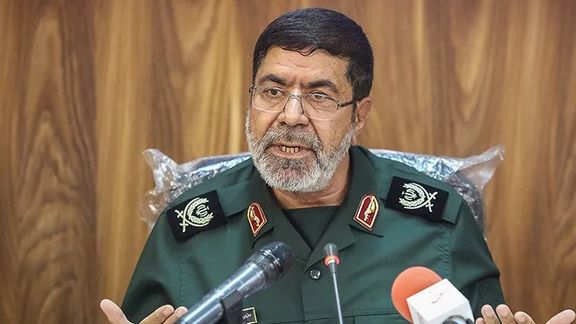
The spokesman for Iran’s Revolutionary Guard (IRGC) has rejected speculations that Israel or any other country has infiltrated the IRGC and its intelligence apparatus.
Referring to several mysterious killings of IRGC officers in recent months, Brigadier General Ramezan Sharif said on Saturday that the assassinations do not indicate the power of Israel, emphasizing that the Islamic Republic has responded and will continue to respond to their hostile acts.
Referring to the May 22 assassination of Hassan Sayyad in Tehran -- who was in charge of some IRGC operations abroad -- he said that the assassination of an officer in Tehran is not an unimportant issue, but it shows that the Revolutionary Guards do not live separated from the ordinary people.
“The Israelis are extremely vulnerable and live in fear all the time. They repeat that they have the Iron Dome (air defense system) or cyber (systems), which shows their weakness,” he added, noting that they have resorted to psychological warfare due to their failures in the field.
"The Zionist regime is experiencing the worst security condition and is under intense pressure," he said, adding that "Their (Israelis) measures have no impact on the Islamic Republic at all because they are unable to confront Iran."
Following repeated incidents indicating widespread Israeli infiltration in its intelligence and security networks, Iran’s IRGC admitted in June that its counter-intelligence was targeted.
Earlier in June, Hossein Ta’eb, the long-serving head of the Revolutionary Guard’s Intelligence organization (SAS in Persian acronym) was replaced followed by other personnel changes at the top.
The change considered to be a pivotal move by Supreme Leader Ali Khamenei came after a series of unexplained deadly attacks against IRGC officers and other breaches of security in Iran’s nuclear and military installations.
In addition to the Russian invasion of Ukraine, “they discussed ongoing negotiations over Iran’s nuclear program, the need to strengthen support for partners in the Middle East region, and joint efforts to deter and constrain Iran’s destabilizing regional activities," the White House said in its description of the call among the four allies. It did not provide any further details about the issues concerning the Middle East.
US President Joe Biden, British Prime Minister Boris Johnson, French President Emmanuel Macron and German Chancellor Olaf Scholz participated in the call.
Last week, the European Union and United States said they were studying Iran's response to what the EU described as a "final" proposal to restore the deal.
Earlier in the day, Mohammad Marandi, the de facto spokesman for Iran's nuclear negotiating team, said that Tehran has received considerable concessions from Washington in the nuclear talks.
A leaked report from Tehran on Friday, August 19, said that Iran’s chief nuclear negotiator Ali Bagheri-Kani had given local reporters in a closed-door briefing a list of “concessions” obtained from the United States.
These included exempting a range of Iranian government-linked entities from sanctions imposed for their role in Iran’s terror-related activities, and a pledge not to sanction any entity for links with the Revolutionary Guard.